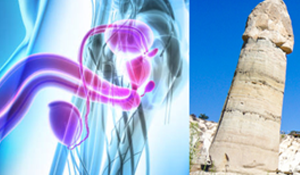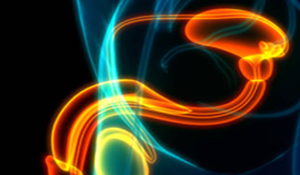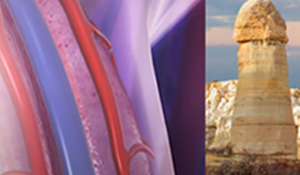Erectile Dysfunction (ED) or Impotence is a condition in which a man has problems getting and maintaining an erection. The condition can be caused by a variety of different conditions that prevent normal blood flow to the penis. In some cases, erectile may be a symptom of a more serious health condition.
LEARN MORE NOW
 Mind-Blowing Hardening Secret Cured My ED And Changed My Life. SEE IT
Mind-Blowing Hardening Secret Cured My ED And Changed My Life. SEE IT
 93% Of Men Reversed ED With This 100% Natural Remedy. Big Pharma Absolutely Hates This. SEE IT
93% Of Men Reversed ED With This 100% Natural Remedy. Big Pharma Absolutely Hates This. SEE IT
 Discover The True Cause Of ED And Its Remedy: Not What You Think It Is. SEE IT
Discover The True Cause Of ED And Its Remedy: Not What You Think It Is. SEE IT
There are about 30 million men in America who suffer from erectile dysfunction. While a major percentage of men who suffer from ED are 40 years old and over, men in their 20’s and 30’s also suffer from this condition.
There are many reasons a man may have erectile dysfunction, including age, medication, or other health conditions such as diabetes, vascular disease, and neurological conditions.
Mental conditions, such as depression, trauma, and chronic illnesses can also cause erectile dysfunction.
Erectile dysfunction may be an indication of a more serious problem. If left untreated, erectile dysfunction can lead to serious health conditions.
The most common cause of erectile dysfunction is arteriosclerosis. This condition is most common among older men and is caused by physical or psychological conditions that damage the arteries.
Men suffering from erectile dysfunction often report strong feelings of humiliation and embarrassment.
They may avoid sexual activities with their partners or feel inadequate. This can take a heavy toll on the relationship. It can also hurt the man’s ego.
Treatment for erectile dysfunction varies greatly from patient to patient. Depending on the cause of the condition, a doctor may prescribe an oral medication or refer the patient to a urologist for either surgical or non-surgical treatment options.
Despite the stigma surrounding erectile dysfunction, it is a condition that can be treated.
Knowing the various symptoms of erectile dysfunction can help prevent, manage, and treat the condition.
Below are erectile dysfunction symptoms worth knowing about.
9. Difficulty Maintaining An Erection
In some cases, men can find it difficult to maintain an erection when they are anxious. This can also be brought about by various factors. For example, anxiety about keeping an erection is a common reaction to even a mild medical condition that impairs sexual response.
Other common causes are relationship problems. Psychological problems combined with physiological issues can also make it difficult for a man to maintain an erection. If these underlying conditions are left untreated, it could make the condition even worse.
8. Random Erection
Random erection can be caused by fluctuation in testosterone level, which in turn can be a result of various health conditions such as diabetes, thyroid problems, kidney conditions, heart disease, obesity, high cholesterol, smoking, or certain medications.
Random erection is characterized by frequent erections that occur without a sexual trigger. It can be very uncomfortable and may lead to erectile dysfunction.
7. Premature Ejaculation
Premature ejaculation can be caused by penile hypersensitivity brought about by changes in hormone levels such as oxytocin. This is a hormone that’s released during orgasm. Changes in luteinizing hormone and prolactin and thyroid stimulating hormone can also cause premature ejaculation.
In some cases, genetics, mental disorders, and environmental factors can all contribute to premature ejaculation.
6. Delayed Ejaculation
Delayed ejaculation can be a result of certain physical or mental conditions, such as stress, alcoholism, or obsessive-compulsive disorder. It may also be due to neurobiological factors such as age, low testosterone, or other hormonal conditions.
Medications such as antidepressants, antipsychotics, and diuretics can also cause delayed ejaculation. Anxiety and depression can also cause delayed ejaculation.
5. Inability To Have An Orgasm
A number of medical conditions can lead to orgasm problems, including neurological disorders. A common cause of it is damage to the nerves supplying the ejaculatory organs.
Other health conditions may also interfere with the nerve signals sent to the sexual organs. Other causes can include underlying health conditions, side effects of medication, and psychological factors, such as lack of attraction to a partner or traumatic events in the past.
4. Low Self Esteem
A man with erectile dysfunction may feel guilty about not being able to satisfy his partner and this can be a contributing factor to his ongoing cycle of erectile dysfunction. His low self-esteem may also stem from his negative perception of his sexual performance.
This may impact the quality of relationships and his sex life. Low self-esteem may also be a result of depression or anxiety brought about by the condition.
3. Decreased Sex Drive
Low libido is often caused by a combination of psychological factors, lifestyle habits, and underlying medical conditions. For example, a man may experience reduced sex drive if his testosterone levels are low. Low testosterone levels can be caused by an injury to the testicles or by hormonal imbalances.
Other factors can also be the cause of decreased libido, from a lack of physical activity to emotional stress. Stress, substance abuse, and underlying medical conditions can all reduce a man’s libido and lead to a relationship that is less satisfying.
2. Loss Of Sex Drive
The cause of this loss can range from other health conditions to medications. Lack of sleep is another common cause of loss of sex drive. Insufficient sleep increases cortisol levels, which reduces libido.
Sleep apnea, a sleeping disorder can affect libido. The disorder is characterized by interrupted sleep and can result in changes in testosterone. The low levels of dopamine in the brain are also thought to contribute to the condition. Stress is also a common cause of decreased libido.
1. Inability To Have An Erection At All
The inability to have an erection may be due to stress or sudden changes in lifestyle. In severe cases, it may be a symptom of a more serious medical condition. Medical conditions such as blood vessel disease, high cholesterol levels, and high blood pressure can also contribute to the problem.
Other underlying causes include injuries, which can damage erection nerves or tissues. Low testosterone levels can also be a culprit.
Treatments And Care
Treatment for erectile dysfunction varies greatly from patient to patient. Depending on the cause of the condition, a doctor may prescribe an oral medication or refer the patient to a urologist for either surgical or non-surgical treatment options.
There are also many different types of psychological treatments for erectile dysfunction. The best treatment for a patient depends on their goals and medical history.
Despite the stigma surrounding erectile dysfunction, it is a condition that can be diagnosed and treated.
Below are erectile dysfunction treatments worth knowing about.
17. Natural And Herbal Remedies
Studies from the American Center For Reproductive Medicine show that certain herbs such as Panax ginseng, Pygnogenol, Prelox, and Tribulus terrestris have some mechanisms of action that increase nitric oxide synthesis, which is essential in the treatment of ED. They also found the nutritional supplement L-arginine to have the same mechanisms of action.
Other studies confirm the following herbs and supplements to be effective in improving erectile function: Ginseng, Horny goat weed (Icariin), Eurycoma longifolia Jack (Tongkat Ali), Dehydroepiandrosterone (DHEA), Citrulline, Yohimbine, Fenugreek, Vitamin D, Vitamin B3, and Folic acid (Vitamin B9).
17. Shockwave Therapy
Shockwave therapy, also known as low-intensity extracorporeal shockwave therapy (Li-ESWT), is a non-invasive treatment that uses sound waves to improve blood flow and stimulate the growth of new blood vessels.
The procedure is non-invasive, painless, and typically takes around 20 minutes. There is no downtime after the procedure and patients can return to normal activities immediately.
One of the largest studies on shockwave therapy for ED was published in the Journal of Urology in 2016. This study found that over 80% of patients reported improved erections after undergoing shockwave therapy.
Another study published in the World Journal of Urology in 2017 also reported positive results, with over 70% of patients reporting improved erections.
(continued next page)
 Mind-Blowing Hardening Secret Cured My ED And Changed My Life. SEE IT
Mind-Blowing Hardening Secret Cured My ED And Changed My Life. SEE IT
 93% Of Men Reversed ED With This 100% Natural Remedy. Big Pharma Absolutely Hates This. SEE IT
93% Of Men Reversed ED With This 100% Natural Remedy. Big Pharma Absolutely Hates This. SEE IT
 Discover The True Cause Of ED And Its Remedy: Not What You Think It Is. SEE IT
Discover The True Cause Of ED And Its Remedy: Not What You Think It Is. SEE IT

 How I Cured My ED Without Dangerous Drugs, Painful Surgeries, Or Embarrassing Therapy Sessions. SEE IT
How I Cured My ED Without Dangerous Drugs, Painful Surgeries, Or Embarrassing Therapy Sessions. SEE IT